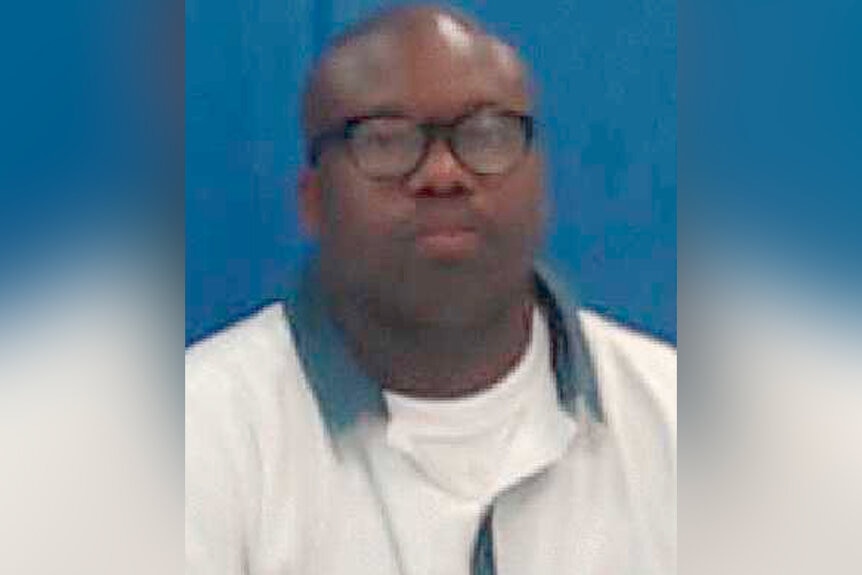Create a free profile to get unlimited access to exclusive videos, breaking news, sweepstakes, and more!
‘He Wanted To Be A Gangster’: Atlanta Judge Shot In The Back By Her Own Son
A son said he cradled his dead mother, Judge Josephine Cook, in his arms after she was shot and killed. That lie led investigators to the real killer.
In the 1990s, the upscale Atlanta suburban community of Cascade Heights became an address associated with power, comfort, and prestige.
But on October 16 1996, a shocking crime shocked the neighborhood. “A 911 call came in,” Clint Rucker, former executive District Attorney, Fulton County, Georgia, told “The Real Murders of Atlanta,” airing Sundays at 8/7c on Oxygen. “The neighbor next door reported that a young man, Raynard Cook, had come home from school and discovered his mother’s body in a pool of blood in the house."
The victim, Josephine Holmes Cook, 49, a superior court judge, was already dead, said Gary Styles, former chief of police, Fulton County, Ga.
Inside the home, blood was found inside the doorway and leading up a stairway to her bedroom. Judge Cook, dressed in a “Re-elect Judge Cook” T-shirt, was lying in a pool of blood downstairs.
Cook was known as a woman of faith, dedication, and ambition. She had recently lost her bid for re-election to the bench, and some speculated that the cause of death was suicide. However, the medical examiner determined that Cook had been shot once in the back of her right shoulder and immediately dispelled that idea.
A search of Cook’s home turned up a .9mm spent projectile and a .9mm empty brass casing. Investigators also observed blood on the keypad of an upstairs phone that had been disconnected from the wall.
“She tried to drag herself downstairs to make a call from the downstairs phone and she bled to death,” said Rhonda Cook, former journalist for the Atlanta Journal-Constitution. “It was a slow death.”
Detectives searched for leads and a motive. Was the brutal slaying linked to a case that Cook tried? Was it a professional hit? Or something personal?
Authorities observed that the door to 17-year-old Raynard Cook’s room had been forced open and the area had been ransacked. Officers found a shoe box containing individually packaged bags of marijuana and a large sum of cash in the room.
Investigators spoke with Raynard and he outlined his movements during the day. He left for school at 7 a.m. and had football practice from 3:30 to 6 p.m. He then went home and found his mother's body, so he rushed to his neighbor’s home. Raynard admitted he sold drugs to his friends to have pocket money.
They learned that Cook and her son, who attended Woodward Academy, a prestigious private high school, had a difficult relationship. But detectives spoke with students at the school who confirmed that Raynard was in school all day.
Officials turned their focus to Cook’s work in the judicial system as a possible motive. A thorough investigation along this line including crime scene fingerprints and DNA evidence led to a dead end.
Investigators then canvassed friends to determine if Cook had expressed concerns before her death. An associate shared with them that Cook had said she was worried about her son. “
"She was concerned that he would go out there and do something stupid,” said friend Saundra Maass-Robinson, adding it was because that seemed to be becoming “his pattern.”
Selling pot was one example. “He wanted to be a gangster,” said Rhonda Cook.
The case took an abrupt and telling turn when the neighbor was asked to corroborate Raynard’s account. He’d told detectives that he’d cradled his mother in his arms when he found her in the pool of blood. The neighbor, however, said when he came in she instructed the teen to sit down on her white sofa. “
"She said, ‘If I had seen one speck of blood he would not have been sitting on my couch,’” Rucker told producers. “So we knew that Raynard was lying.”
Detectives focused on the murder weapon. They spoke with Woodward Academy students and one told them that Raynard bought a gun, a Glock 9 mm pistol, for $150 two weeks before his mother was shot. That matched the type of firearm used to kill the judge.
Because the Glock had an issue with the trigger mechanism, Raynard brought it to a gun shop. When asked by authorities about the gun, Raynard said he threw it away because it was faulty.
A family member then told detectives that Raynard had claimed that a masked man forced him at gunpoint to shoot his mother.
Despite that twist, Raynard was arrested. He was charged with malice murder, felony murder, aggravated assault, and possession of a firearm.
More than a year and a half after the arrest, Raynard Cook’s trial started on March 20, 1998.
The prosecution’s stance was that Raynard murdered his own mother in an act of rebellion and rage. Judge Cook’s discovery of the marijuana and his drug-dealing set off a fatal chain of events. They concluded that Raynard shot his mother and watched as she struggled to call 911, dragged herself down the stairs, and bled to death. Then he went off to school.
The defense, meanwhile, downplayed the strained relationship between Raynard and his mother, the Atlanta Constitution reported.
After each side rested, the jury deliberated. Both sides were concerned when the panel wasn’t back with a verdict in 20 hours, so they sat down to hammer out a deal.
In exchange for his public admission of guilt, prosecutors would reduce the charge to manslaughter with a maximum sentence of 20 years. They sweetened the deal further: If he agreed to undergo counseling, his time behind bars would be less than a year, according to Rucker.
Raynard’s family pressured him not to admit guilt, and he acquiesced.
The jury returned with their verdict. On the count of malice murder, Raynard Cook was found not guilty. On the remaining three counts, he was found guilty. He was handed a life sentence.
To learn more about the case, watch “The Real Murders of Atlanta,” airing Sundays at 8/7c on Oxygen or stream episodes here.






















